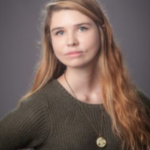
The suffering that FSHD has caused has also made us stronger people
By Meredith Huml
Angier, North Carolina
The words “no cure” and “no treatment” were dropped casually into my lap after much prodding and poking and examination on the day I was diagnosed with a disease I’d never heard of. I was 12 years old when I was told I had FSHD, and that it was only going to get worse as I got older.
For many years after my diagnosis, I felt very alone. Although FSHD slowly took over my mental health, the disease was something I refused to talk about. I was scared, and often felt ashamed and humiliated. I hurt people who were concerned about me, and I hurt myself.
My goal in becoming more active in the FSHD community was to find a cure for my younger brother and myself. As I connected with and talked to more people in the community, my goal expanded to finding a cure for them, too, and for their loved ones. An end to this disease is in sight.
Without any conscious effort, this goal led me to also embrace myself and find beauty in my struggles. It has led me to a well of courage to advocate for myself, for others in the FSHD community, and for people with varying disabilities as a whole.
The suffering that FSHD has caused our community has also made us stronger people, and what better people to lead than those who understand pain and can find strength in that pain?
I never would have imagined that being open about my struggles and being vulnerable would have the ability to touch so many others. Sometimes it really is one person who can make a difference. Imagine the difference that thousands together can make.
Meredith Huml is director of the North Carolina Chapter of the FSHD Society.


Leave a Reply